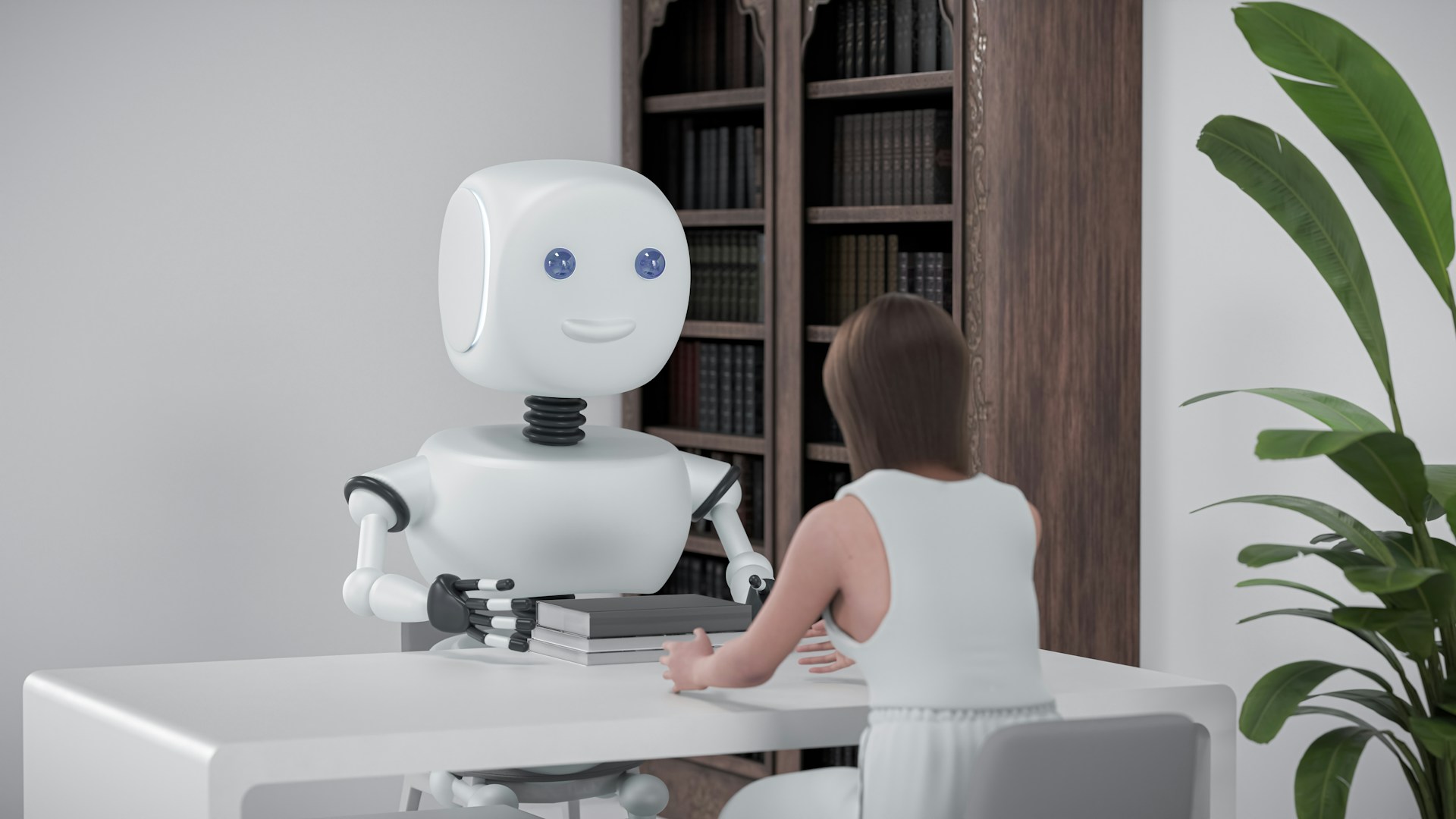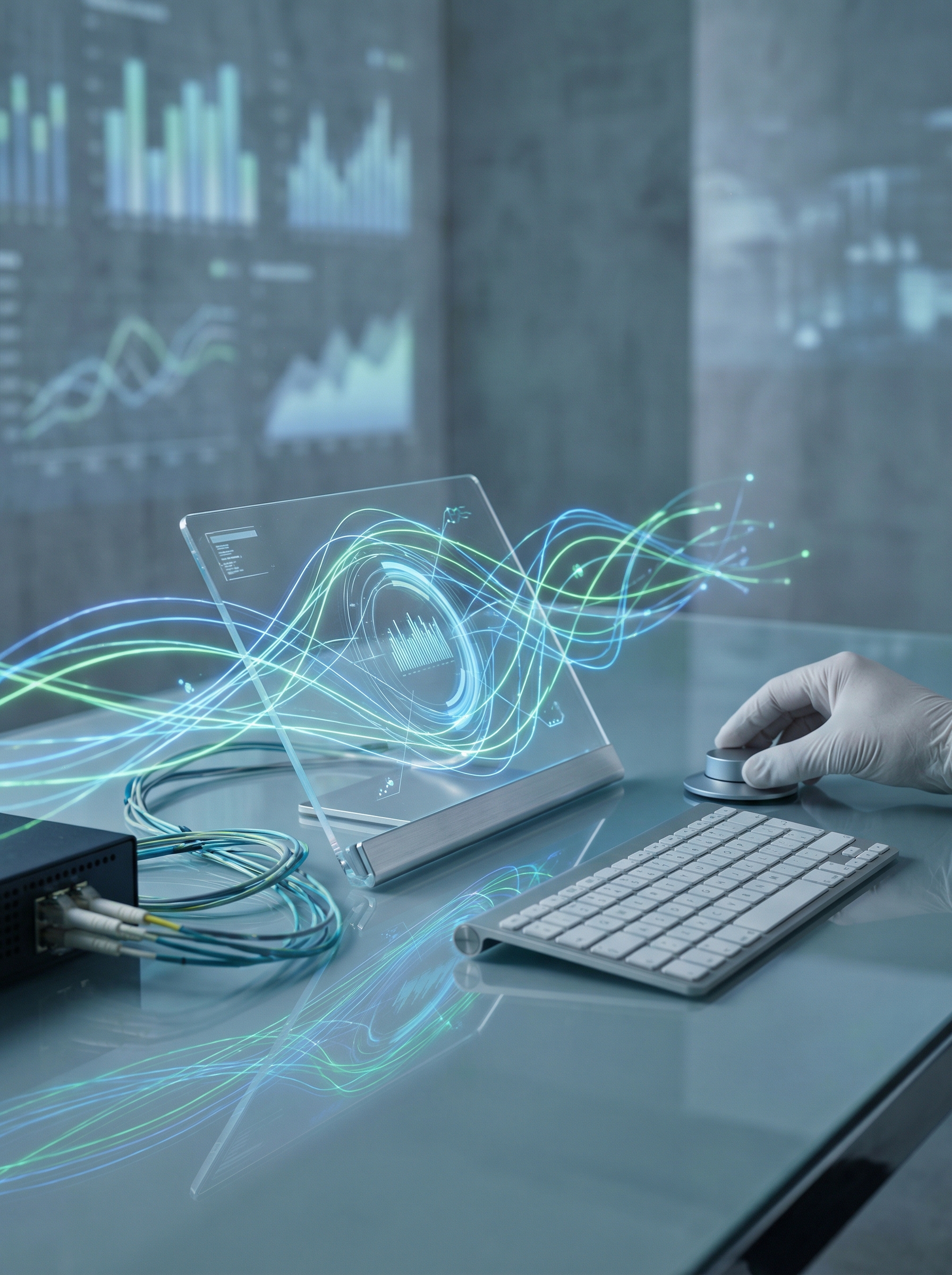
October 21, 2025
AI & Automation in Marketing
How AI Is Changing the Role of PPC Managers
Pay-per-click advertising has long been a game of constant monitoring, manual bid adjustments, and keyword-level optimization. PPC managers traditionally spent their days deep in spreadsheets, tweaking campaigns element by element, and racing against competitors for ad placement.
AI in PPC is rewriting this playbook entirely.
The role of PPC managers is undergoing a fundamental transformation. PPC automation powered by artificial intelligence has shifted the landscape from tactical execution to strategic orchestration. You're no longer just managing campaigns—you're managing the algorithms that manage campaigns.
This shift brings both exciting opportunities and complex challenges. The managers who thrive are those who understand how to work with AI rather than against it, leveraging automation while applying irreplaceable human judgment.
In this article, you'll discover:
- How AI technologies are reshaping daily PPC responsibilities
- The new skills you need to stay competitive
- Why creative strategy matters more than ever
- The future of human oversight in an automated advertising world
The transformation is already here. Let's explore how AI is changing the role of PPC managers.
How AI Has Changed PPC Management
The evolution of PPC has fundamentally altered what PPC managers do on a daily basis. You're no longer spending hours adjusting bids manually or combing through spreadsheets to identify performance patterns. The AI impact on PPC has shifted your role from tactical executor to strategic architect.
Bidding Made Smarter with Machine Learning
Machine learning algorithms like Google's Smart Bidding have taken over the grunt work. These systems analyze thousands of signals in real-time—device type, location, time of day, browsing behavior—to optimize bids at the moment of each auction. You used to make bid adjustments based on yesterday's data. Now, algorithms process auction-time signals and adjust bids instantaneously based on conversion likelihood.
Faster Insights with Automation
Automation in PPC extends beyond bidding. Automated reporting tools now generate performance insights in minutes rather than hours. You can identify trends, anomalies, and opportunities faster than ever before. The system flags underperforming ad groups, suggests budget reallocation, and surfaces optimization opportunities while you focus on strategy.
Streamlined Campaign Management with AI-Powered Tools
One of the significant advancements in this automation is the use of AI-powered tools like Negator, which classify search terms as relevant, not relevant, or competitor terms. This allows for the instant generation of negative keyword lists with AI, further streamlining the campaign management process.
A New Kind of Competition
This shift has redefined your value proposition. You're not competing with machines on speed or data processing. You're leveraging AI capabilities to make higher-level decisions about campaign structure, audience strategy, and business alignment. The platforms handle the micro-adjustments while you concentrate on the macro vision—determining which audiences to target, how to allocate budget across campaigns, and which business objectives to prioritize.
Changing Responsibilities of PPC Managers
The daily work of PPC managers looks radically different than it did just five years ago. You're no longer spending hours adjusting individual bids or pausing underperforming keywords. Your role has transformed into something that requires a different skill set entirely: algorithm management.
From Manual Adjustments to Algorithm Management
Think about what this means in practice. You now configure and guide machine learning systems rather than making thousands of micro-adjustments yourself. You set parameters, define conversion goals, and establish guardrails for automated systems to operate within. Your expertise lies in understanding how these algorithms interpret signals and make decisions, then optimizing those inputs for better outcomes.
Collaboration with Data Teams
Strategic initiatives in PPC now demand close partnerships with data teams. You're working directly with analysts and data engineers to implement first-party data strategies that feed your campaigns. This collaboration ensures you're leveraging customer insights, purchase history, and behavioral data to create sophisticated audience segments that automated systems can target effectively.
Expanded Metrics Tracking
Your focus has expanded beyond traditional keyword metrics. You're tracking:
- Customer lifetime value across channels
- Attribution models that span the entire funnel
- Cross-device conversion paths
- Brand lift and awareness metrics
This shift toward full-funnel strategies means you're evaluating campaign success through a broader lens. You're connecting PPC performance to business objectives like revenue growth, customer acquisition costs, and long-term profitability rather than isolated metrics like click-through rates.
The Growing Importance of Creative Strategy in an Automated World
Automation handles the technical heavy lifting, which means you now have bandwidth to invest in what machines can't replicate: compelling creative strategy in PPC. The time you once spent adjusting bids manually or reorganizing ad groups can now go toward developing messaging that resonates with your audience on a deeper level.
Your role has expanded into ad content optimization territory. You're not just writing headlines anymore—you're architecting entire creative frameworks that work in harmony with automated systems. This means testing different value propositions, experimenting with emotional triggers, and developing ad variations that speak to different audience segments. You collaborate directly with designers and copywriters to ensure your ads don't just capture clicks but deliver experiences that align with user intent.
The integration of creative strategy with automated processes creates a powerful synergy. While Smart Bidding determines when and where to show your ads, you determine what users see and why they should care. You're analyzing performance data from automated campaigns to identify which creative elements drive conversions, then feeding those insights back into your creative development process.
Collaboration with creative teams has become non-negotiable. You're working together to optimize landing pages, refine ad copy, and ensure visual consistency across the customer journey. The machine learning algorithms can identify winning combinations, but you provide the strategic direction that makes those combinations meaningful to your business objectives.
Collaboration Between PPC and Other Marketing Teams
The barriers between PPC and other marketing areas are breaking down. Thanks to AI-powered automation, PPC managers now have the opportunity to go beyond their isolated campaigns and form valuable partnerships with other departments.
The Importance of PPC and SEO Collaboration
Collaboration between PPC and SEO is crucial for dominating search engine results pages. It's no longer possible to treat paid and organic search as separate entities. Here's how this collaboration can benefit both teams:
- Sharpening Organic Content Strategy: When your PPC team shares conversion data with SEO, it provides valuable insights that can enhance your organic content strategy.
- Capturing Qualified Traffic at Lower Costs: By leveraging keyword research insights from SEO, your PPC campaigns can target more specific keywords and attract higher-quality traffic at reduced costs.
The Power of Holistic SERP Strategies
I've witnessed the incredible outcomes that come from implementing holistic SERP strategies where teams work together:
- Your PPC ads can test different messaging approaches that SEO later incorporates into meta descriptions.
- Your organic content can address informational queries while paid ads focus on high-intent commercial searches.
- This division of responsibilities maximizes your visibility throughout the entire customer journey.
The Benefits of Cross-Team Synergy
The advantages of collaboration between teams go beyond just search:
- Improved targeting precision across all channels through shared audience insights
- Strengthened brand recognition through consistent messaging
- Uncovering customer behavior patterns that single-channel analysis may overlook by combining data sets
- More efficient resource allocation when teams have a better understanding of each other's capabilities
Establishing Communication Channels
To foster this collaboration, it's essential to establish regular communication channels between PPC and other teams. Here are some effective ways to do so:
- Weekly sync meetings
- Shared dashboards
- Collaborative planning sessions
By implementing these practices, you can transform how you approach digital marketing. The data generated by your PPC campaigns will serve as valuable input for content marketing, email campaigns, and social media strategies.
Challenges Faced by PPC Managers in the Age of AI
The shift toward AI-powered advertising brings significant hurdles that you need to navigate as a PPC manager. Balancing human control and automation stands as one of the most pressing challenges you'll face daily. You're constantly walking a tightrope between trusting machine learning algorithms to make real-time decisions and maintaining enough oversight to prevent costly mistakes. When Smart Bidding systems make unexpected adjustments, you need to determine whether the algorithm is optimizing toward a better outcome or veering off course from your business objectives.
The demand for AI/ML understanding for marketers has become non-negotiable. You can't effectively manage what you don't understand. I've seen countless PPC managers struggle because they treat AI tools as black boxes, clicking buttons without grasping the underlying principles. You need to comprehend how neural networks process data, how training sets influence algorithm behavior, and why certain inputs produce specific outputs. This technical knowledge separates managers who simply use tools from those who truly leverage them.
Upskilling challenges compound these difficulties. The platforms you use today will introduce new AI features tomorrow. Google Ads, Microsoft Advertising, and Meta Ads Manager release updates at a relentless pace. You're expected to master Performance Max campaigns while simultaneously learning about AI-generated ad variations and predictive analytics. The learning curve never flattens—it only gets steeper. You need dedicated time for training, experimentation, and staying current with industry developments, yet client demands and daily campaign management often consume that time.
Future Outlook: The Strategic Role of Human Oversight in AI-Powered PPC
The future of PPC management points toward a fundamental shift in how you'll spend your time as a PPC professional. AI will handle the heavy lifting of execution—bid adjustments, budget allocation, audience targeting—while you focus on strategic oversight in AI era decisions that machines can't make.
You'll become the architect rather than the builder. Your role will center on:
- Setting campaign objectives that align with broader business goals
- Interpreting AI-generated insights within the context of market conditions
- Making judgment calls on brand positioning and messaging strategy
- Identifying opportunities that fall outside algorithmic patterns
Human-AI collaboration isn't about choosing between automation and manual control. You'll need to understand when to trust the algorithm and when to override it based on factors AI can't process—like upcoming product launches, brand reputation concerns, or competitive intelligence.
Your strategic value lies in asking the right questions. AI tells you what is happening in your campaigns, but you determine why it matters and how it connects to business objectives. You'll evaluate whether improved click-through rates actually drive revenue or if lower-cost conversions represent quality leads.
The PPC managers who thrive will be those who embrace AI as a tool that amplifies their strategic thinking rather than replaces it. You'll spend less time in spreadsheets and more time in boardrooms, translating algorithmic performance into business impact.
How AI Is Changing the Role of PPC Managers
Discover more about high-performance web design. Follow us on Twitter and Instagram




